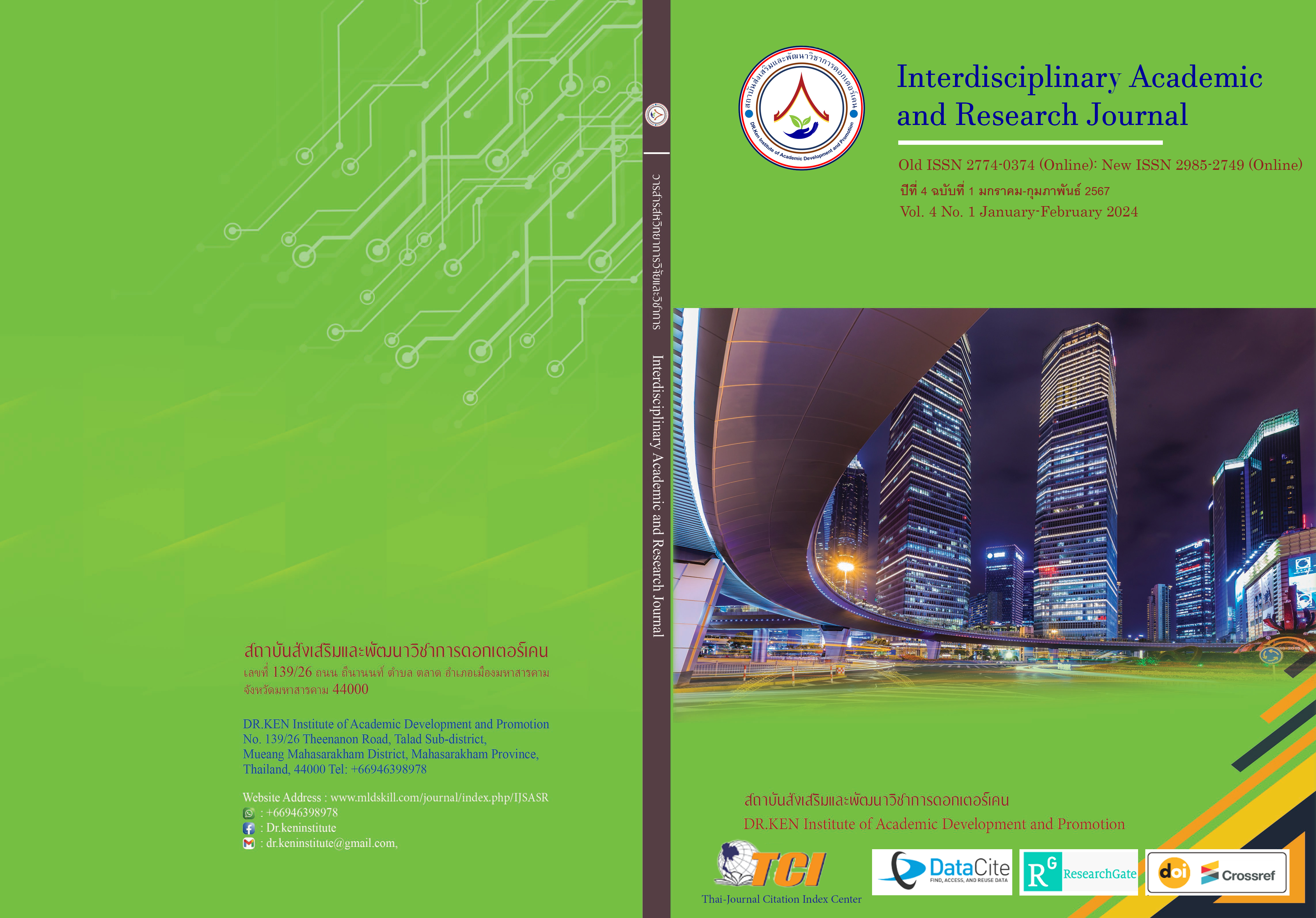Infringement Liability: A Case Study of the Bereaved Families
DOI:
https://doi.org/10.60027/iarj.2024.273085Keywords:
Depression; , Emotional Distress; , CompensationAbstract
Background and Aims: The problem of compensation in emotional distress cases and the criteria for providing compensation for emotional distress when harm occurs will be addressed to the injured person. This is not monetary harm, but rather, emotional harm to individuals with relationships that are severely affected by the violation, causing that affected individuals to experience sadness, sorrow, anxiety, and fear that may lead affected individuals to a state of depression, directly impacting the individuals’ quality of life.
Methodology: Emotional distress can be claimed in cases where harm occurs to an individual’s health or freedom. According to commercial and civil laws, emotional distress does not include damage to other individuals who have a close or emotional relationship with the injured party due to the violation. Currently, emotional distress has been defined in the Product Liability Act B.E. 2551, Section 11(1), which specifies that if the injured party suffers death, their spouse, descendants, or heirs may be eligible for compensation for emotional distress.
Results: The Author believes that there should be further amendments and improvements to the commercial and civil laws by establishing compensation for emotional distress in cases where the injured party suffers death, allowing spouses, descendants, or heirs of that person to receive compensation for emotional distress.
Conclusion: Improvements in civil and commercial law should include additional calculations of damages for mental injury in the case of death by allowing the husband, wife, parents, or dependents to have the right to receive damages for such mental damage as well.
References
ธนา นิลชัยโกวิทย์. (2550). ความเศร้าโศกเสียใจที่เกิดจากการสูญเสียและการตาย. กรุงเทพฯ: บียอนด์เอ็นเทอร์ไพรซ์.
ผู้จัดการสุดสัปดาห์. (2565). “โรคซึมเศร้า” วิกฤตคร่าชีวิตคนไทย เข้าไม่ถึงการรักษา ฆ่าตัวตายสำเร็จสูง. บทความออนไลน์. Retrieved February 26, 2022 from https://mgronline.com/daily/detail/9650000019098
พรทิพย์ สุทธิอรรถศิลป์. (2557). ค่าเสียหายทางจิตใจ: ศึกษากฎหมายลักษณะละเมิดของอังกฤษและเยอรมันเปรียบเทียบกับกฎหมายลักษณะละเมิดของไทย. สถาบันพัฒนาข้าราชการฝ่ายตุลาการศาลยุติธรรม สำนักงานยุติธรรม พ.ศ.2557.
วารี นาสกุล. (2562). คำอธิบายประมวลกฎหมายแพ่งและพาณิชย์ลักษณะละเมิด จัดการงานนอกสั่ง ลาภมิควรได้. พิมพ์ครั้งที่ 5 กรุงเทพฯ:มหาวิทยาลัยรามคำแหง,
ศรินรัตน์ วัณนธรนันท์ (2560). ความโศกเศร้าจากการสูญเสียบุคคลอันเป็นที่รัก:บทบาทพยาบาล. วารสารพยาบาลสภากาชาดไทย. 10 (1),13-21.
The Fatal Act (1976). Claims For Loss of Dependency Under the Fatal Accidents Act 1976. Retrieved from: https://www.lexology.com/library/detail.aspx?g=b1f8b077-8140-4aa9-9640-706102dbd5fc
Downloads
Published
How to Cite
Issue
Section
License
Copyright (c) 2024 Chudtapong Chuedee

This work is licensed under a Creative Commons Attribution-NonCommercial-NoDerivatives 4.0 International License.
Copyright on any article in the Interdisciplinary Academic and Research Journal is retained by the author(s) under the under the Creative Commons Attribution-NonCommercial-NoDerivatives 4.0 International License. Permission to use text, content, images, etc. of publication. Any user to read, download, copy, distribute, print, search, or link to the full texts of articles, crawl them for indexing, pass them as data to software, or use them for any other lawful purpose. But do not use it for commercial use or with the intent to benefit any business.
















.png)


